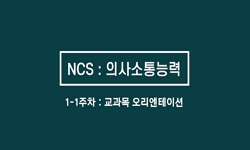본 연구는 간호사의 의사소통능력, 자아존중감, 조직몰입의 정도를 확인하고 그 관계를 파악하고자 하는 서술적 조사연구이다. 본 연구의 대상자는 경상남도 Y시에 소재하는 P상급종합병원...
http://chineseinput.net/에서 pinyin(병음)방식으로 중국어를 변환할 수 있습니다.
변환된 중국어를 복사하여 사용하시면 됩니다.
- 中文 을 입력하시려면 zhongwen을 입력하시고 space를누르시면됩니다.
- 北京 을 입력하시려면 beijing을 입력하시고 space를 누르시면 됩니다.
병원간호사의 의사소통능력, 자아존중감, 조직몰입의 관계 = The Relationship among Communication Competence, Self-esteem, and Organizational Commitment among Hospital Nurses
한글로보기https://www.riss.kr/link?id=T15496894
- 저자
-
발행사항
부산 : 부산가톨릭대학교 일반대학원, 2020
-
학위논문사항
학위논문(석사) -- 부산가톨릭대학교 일반대학원 , 간호학과 성인간호 , 2020. 2
-
발행연도
2020
-
작성언어
한국어
- 주제어
-
발행국(도시)
부산
-
형태사항
62 ; 26 cm
-
일반주기명
지도교수: 강소영
-
UCI식별코드
I804:21037-200000293812
- 소장기관
-
0
상세조회 -
0
다운로드
부가정보
국문 초록 (Abstract)
본 연구는 간호사의 의사소통능력, 자아존중감, 조직몰입의 정도를 확인하고 그 관계를 파악하고자 하는 서술적 조사연구이다. 본 연구의 대상자는 경상남도 Y시에 소재하는 P상급종합병원에서 근무하고 있는 간호사를 대상으로 2019년 10월 21일부터 2019년 11월 01일까지 설문조사를 시행하여 회수된 159부를 최종분석 하였다. 연구의 도구로 의사소통능력은 허경호(2003)가 개발한 도구를 사용하였고, 자아존중감은 Rosenberg의 자아존중감 척도를 토대로 안황란(1993)에 의해 개발된 도구를 사용하였으며, 조직몰입은 Allen과 Meyer(1990)가 개발하고 송민정(2015)이 수정·보완한 도구를 사용하였다. 자료분석은 SPSS WIN 23.0 프로그램을 이용하여 빈도와 백분율, 평균과 표준편차, t-test, one-way ANOVA, Pearson's correlation coefficient로 분석하였고, 사후검정은 Scheffé test로 분석하였다.
본 연구의 결과는 다음과 같다.
1. 대상자의 성별은 여성이 137명(86.2%)이었고, 연령은 25세 이상-30세 미만이 69명(43.4%)으로 가장 많았다. 종교는 없다고 응답한 경우가 124명(78.0%)으로 많았으며, 결혼상태는 미혼이 107명(67.3%)이었으며. 교육정도는 대졸이 117명(73.6%)으로 가장 많았다. 근무부서는 특수부서가 59명(37.1%), 근무유형은 교대근무가 98명(61.6%)으로 가장 많았다. 총 경력은 3개월 이상-5년 미만 75명(47.2%), 현 부서경력은 3개월 이상-5년 미만이 103명(64.8%)으로 가장 많았다.
2. 대상자의 의사소통능력의 전체 평균 점수는 최대 5점에 3.52점, 자아존중감의 전체 평균 점수는 최대 4점에 2.69점, 조직몰입의 전체 평균 점수는 최대 5점에 2.82점이었다. 조직몰입의 하위영역별 평균점수는 정서적 몰입 3.09점, 지속적 몰입 2.76점, 규범적 몰입 2.60점이었다.
3. 대상자의 일반적 특성에 따른 의사소통능력, 자아존중감, 조직몰입의 차이를 살펴보면, 의사소통능력은 모든 일반적 특성과는 통계적으로 유의한 차이가 없었다. 자아존중감은 성별(t=2.86, p=.005), 결혼상태(t=2.19, p=.030)에 따라 통계적으로 유의한 차이가 있었다. 조직몰입은 성별(t=2.40, p=.018), 결혼상태(t=3.29, p=.001), 근무부서(F=4.38, p=.014), 근무유형(t=-3.16, p=.002)에 따라 유의한 차이가 있었다.
4. 대상자의 의사소통능력, 자아존중감, 조직몰입 간의 상관관계를 분석한 결과, 의사소통능력과 자아존중감은 정적 상관관계(r=.60, p<.001)가 있었고, 의사소통능력과 조직몰입(r=.29, p<.001), 자아존중감과 조직몰입(r=.33, p<.001) 등도 정적 상관관계가 있었다.
이상의 연구결과에서 병원간호사의 의사소통능력은 자아존중감, 조직몰입을 높이는 역량이기 때문에 의사소통능력을 개발하는 방안을 마련하여 효과적인 간호인력 관리가 이루어져야 할 것이다.
주제어 : 간호사, 의사소통능력, 자아존중감, 조직몰입
다국어 초록 (Multilingual Abstract)
This study was a descriptive survey aiming to examine the levels of communication competence, self-esteem, and organizational commitment and investigate their relationship among nurses. A questionnaire survey was administered on nurses at P tertiary h...
This study was a descriptive survey aiming to examine the levels of communication competence, self-esteem, and organizational commitment and investigate their relationship among nurses. A questionnaire survey was administered on nurses at P tertiary hospital based in Y city, Gyeongsangnam-do from October 21, 2019 to November 01, 2019, and 159 retrieved questionnaires were included in the final analysis. Communication competence was measured using the tool developed by Hur (2003), and self-esteem was measured using the tool developed by Ahn (1993) based on the Self-Esteem Scale by Rosenberg. Organizational commitment was developed using the tool developed by Allen and Meyer (1990) and modified and adapted by Song (2015). Data were analyzed using frequency and percentage, mean and standard deviation, t-test, one-way ANOVA, and Pearson's correlation coefficients with the Scheffé test as post-hoc analysis on the SPSS WIN 23.0.
The result of this study can be summed up as follows.
1. 137(86.2%) of the participants were females, and those who were in the age range of 25–29 were the most at 69(43.4%). 124(78.0%) participants claimed to have no religion, and 107(67.3%) were single. When it comes to education, 117(73.6%) participants were university graduates. 59(37.1%) worked in a special unit, and 98(61.6%) worked shifts. Total clinical experience was 75(47.2%) for 3 months to less than 5 years and clinical experience at current department was 103(64.8%) for 3 months to less than 5 years.
2. The mean communication competence score was 3.52 out of 5, and the mean self-esteem score was 2.69 out of 4. The mean organizational commitment score was 2.82 out of 5. The mean scores for organizational commitment subscales were 3.09 for affective commitment, 2.76 for continuance commitment, and 2.60 for normative commitment.
3. Regarding the differences in communication competence, self-esteem, and organizational commitment according to general characteristics, there were no statistically significant differences in communication competence according to all general characteristics. Self-esteem statistically significantly differed according to gender(t=2.86, p=.005) and marital status(t=2.19, p=.030), while organizational commitment significantly differed according to gender(t=2.40, p=.018), marital status(t=3.29, p=.001), work unit(F=4.38, p=.014), and work type(t=-3.16, p=.002).
4. Communication competence was positively correlated with self-esteem (r=.60, p<.001) and organizational commitment(r=.29, p<.001), and self-esteem was positively correlated with organizational commitment(r=.33, p<.001).
As these results show that communication competence increases self-esteem and organizational commitment in hospital nurses, measures to develop nurses’ communication competence should be developed to effective nursing workforce management.
Key words : nurse, communication competence, self-esteem, organizational commitment
목차 (Table of Contents)
- I. 서론 1
- 1. 연구의 필요성 1
- 2. 연구의 목적 3
- 3. 용어정의 3
- II. 문헌고찰 5
- I. 서론 1
- 1. 연구의 필요성 1
- 2. 연구의 목적 3
- 3. 용어정의 3
- II. 문헌고찰 5
- 1. 의사소통능력 5
- 2. 자아존중감 7
- 3. 조직몰입 10
- III. 연구방법 14
- 1. 연구 설계 14
- 2. 연구 대상 14
- 3. 연구 도구 14
- 4. 자료수집 및 방법 16
- 5. 자료분석 16
- 6. 윤리적 고려 17
- 7. 연구의 제한점 17
- IV. 연구결과 18
- 1. 대상자의 일반적 특성 18
- 2. 대상자의 의사소통능력 정도 20
- 3. 대상자의 자아존중감 정도 22
- 4. 대상자의 조직몰입 정도 24
- 5. 대상자의 일반적 특성에 따른 의사소통능력의 차이 27
- 6. 대상자의 일반적 특성에 따른 자아존중감의 차이 28
- 7. 대상자의 일반적 특성에 따른 조직몰입의 차이 30
- 8. 대상자의 의사소통능력, 자아존중감, 조직몰입의 상관관계 32
- Ⅴ. 논의 34
- Ⅵ. 결론 및 제언 38
- 1. 결론 38
- 2. 제언 40
- 참고문헌 41
- 부록(설문지) 52
- 영문초록(Abstract) 60












